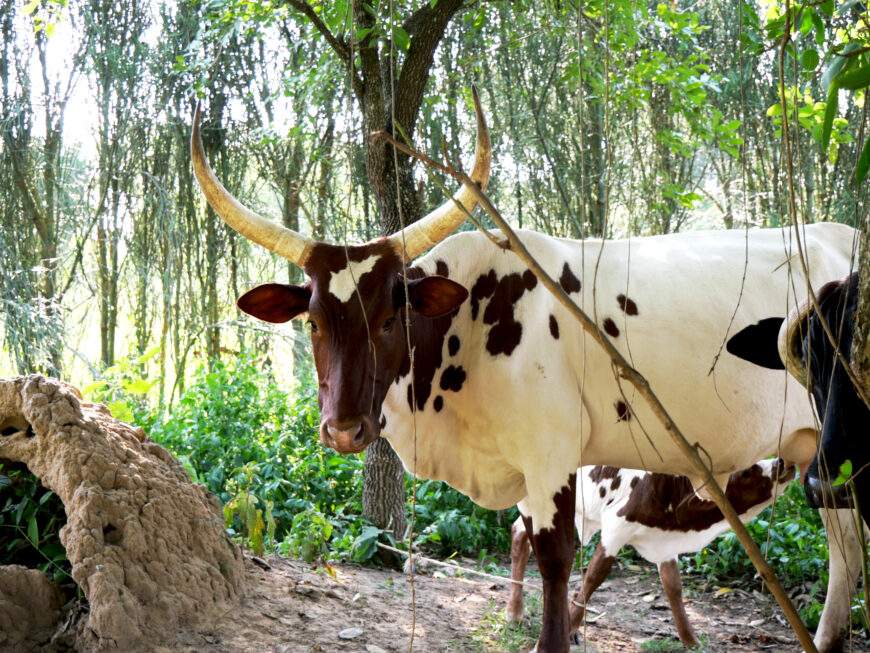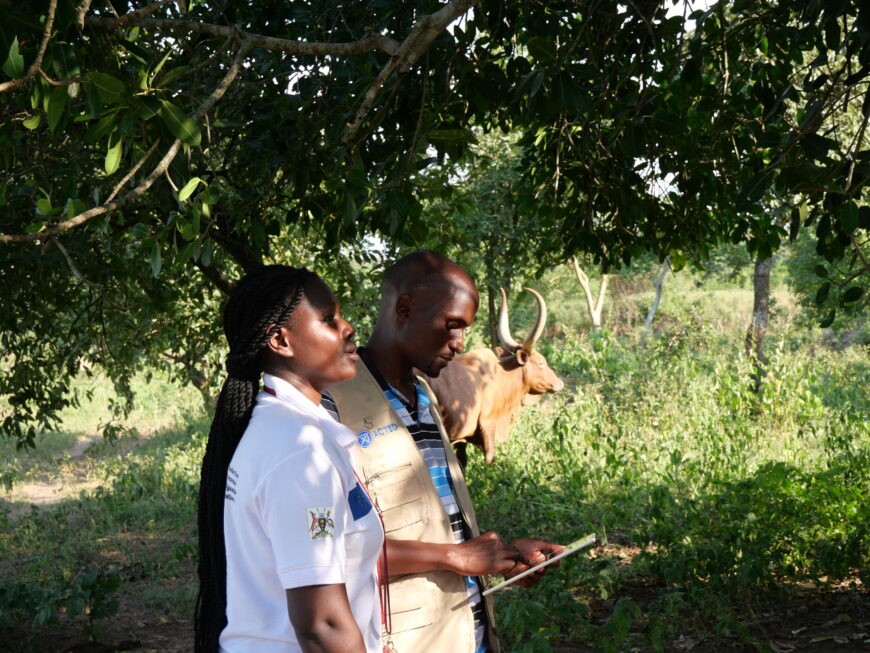The EU-funded project SIRGE* aims to contribute to the climate-relevant, productive and sustainable transformation of agriculture and food systems in Uganda.
In East Africa, few countries have models to precisely identify and quantify Greenhouse Gas (GHG) emissions. In Uganda, stakeholder consultations revealed the need to address the GHG emissions from the livestock sector, which is growing quickly and has a high carbon footprint.

In Uganda, the beef industry is an important contributor to the national food system. As such, it is crucial to identify economically and environmentally sustainable methods of production that contribute to long-term food security. Moreover, livestock contributes both directly and indirectly to climate change and global warming through their greenhouse gas emissions.
What is the SIRGE project in Uganda?
SIRGE (Strengthen an Innovative System for the reduction of Greenhouse Gas Emissions and environmental impacts of the nascent beef industry in Uganda in support to rural sustainable transformation) aims to complement the existing system to enable Uganda to collect, quantify and model comprehensive and precise data on GHG emissions of the livestock sector (IPCC 2006 Tier 2 Methodology) and thus be able to design more targeted mitigation policies.

The SIRGE project, funded by the European Union in Uganda aims to contribute to the climate-relevant, productive and sustainable transformation of agriculture and food systems in Uganda.
What are the main goals?
- Enable innovation in livestock agriculture, focusing on the improvement of animal nutrition
- Reinforce the national and regional agricultural research and data collection capacities
- Promote evidence-based livestock management practices adaptive to climate change
Who will participate in this SIRGE project in Uganda?
